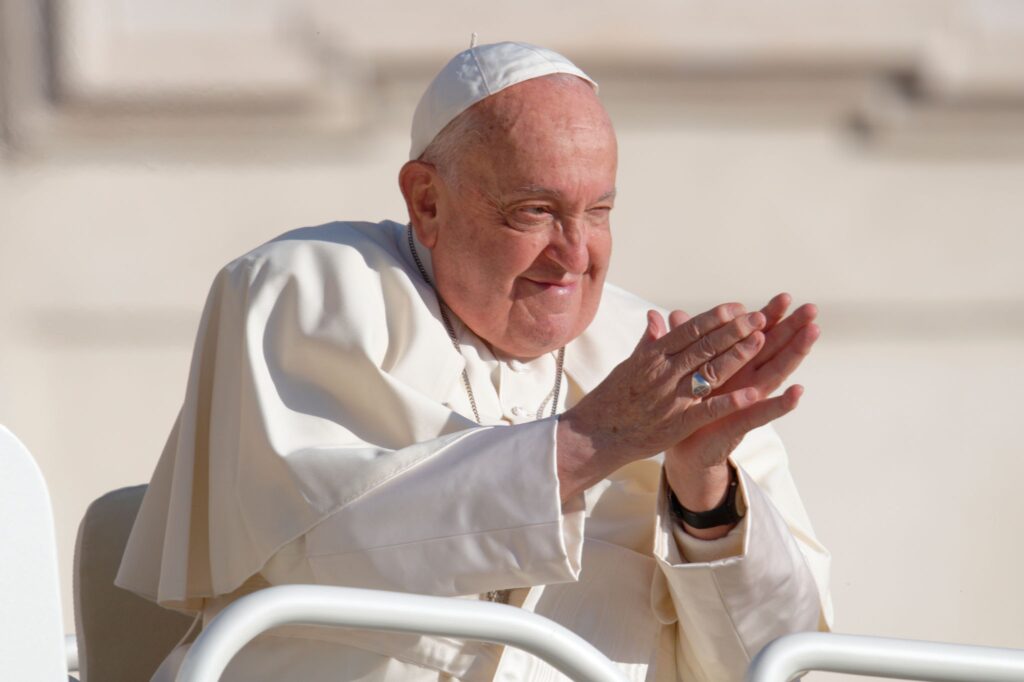The world stood still with heavy hearts upon the passing of Pope Francis, the 266th pontiff of the Roman Catholic Church. Born Jorge Mario Bergoglio in Buenos Aires, Argentina, on December 17, 1936, Pope Francis was the first pope from the Americas, the first Jesuit pope, and the first to take the name “Francis” — a tribute to Saint Francis of Assisi, whose life of humility and care for the poor served as a model for his papacy. His passing marks the end of a transformative era for the Catholic Church and for the world, characterized by his groundbreaking emphasis on mercy, inclusivity, and social justice.
Early Life and Spiritual Formation
Jorge Mario Bergoglio was born to Italian immigrants in Argentina, where he was raised in a working-class neighborhood. His early experiences with poverty, labor, and cultural diversity would deeply inform his theological worldview. He studied chemistry before entering the seminary and joined the Society of Jesus (Jesuits) in 1958. His formation in the Jesuit tradition, known for its intellectual rigor and missionary zeal, set the stage for a life committed to education, humility, and service.
Ordained as a priest in 1969, Bergoglio quickly rose through ecclesiastical ranks. Despite his growing responsibilities, he remained grounded in pastoral work, often traveling to the margins of society to minister to the sick, the poor, and the disenfranchised. He served as Archbishop of Buenos Aires from 1998 to 2013, choosing to live in a modest apartment instead of the archbishop’s palace, and frequently took public transportation rather than a chauffeured car — small but profound choices that reflected his lifelong dedication to simplicity.
Papacy and Global Impact
When Bergoglio was elected pope on March 13, 2013, the conclave’s choice surprised many. Yet it soon became clear that Pope Francis would usher in a new era for the Catholic Church. From the beginning, he broke with tradition in symbolic and substantive ways. He declined to wear the more ornate papal vestments, chose to live in the Vatican guesthouse rather than the Apostolic Palace, and washed the feet of prisoners, immigrants, and women — acts that spoke volumes about his vision for the Church: one that is less about authority and more about service.
Pope Francis’s papacy was marked by his efforts to reform the Vatican bureaucracy, known as the Roman Curia, and to address the sexual abuse scandals that had plagued the Church for decades. His approach was pastoral and deeply human. He emphasized the need to listen to victims, to bring perpetrators to justice, and to institute structural changes aimed at accountability and transparency.
Equally significant was his bold engagement with global social issues. Francis championed the cause of the poor, advocated for migrants and refugees, and became one of the most vocal religious leaders on climate change. His 2015 encyclical Laudato Si’ called for urgent global action to care for “our common home,” a move that resonated far beyond Catholic circles and aligned him with scientists, environmentalists, and humanitarian activists worldwide.
A Bridge-Builder in a Divided World
In a world increasingly polarized by political, cultural, and religious conflicts, Pope Francis stood as a bridge-builder. He advanced ecumenical dialogue with other Christian denominations and deepened interfaith relationships, particularly with Judaism and Islam. His meetings with the Grand Imam of Al-Azhar and his historic visit to Iraq in 2021 — including prayers with Muslim and Yazidi leaders — showcased his commitment to peace and mutual respect.
Francis was not without his critics. Traditionalists within the Church often viewed his reforms and openness as threats to doctrinal purity. His calls for a more welcoming attitude toward LGBTQ+ individuals, divorced Catholics, and those living in “irregular” situations challenged entrenched norms. Yet Francis never claimed to be rewriting doctrine; rather, he urged the Church to approach every person with compassion and understanding — to see the face of Christ in all.
A Legacy of Mercy
More than anything, Pope Francis will be remembered for his focus on mercy. He declared an Extraordinary Jubilee Year of Mercy in 2015–2016, reminding Catholics that God’s mercy is at the heart of the Gospel. His consistent message was that the Church must be a “field hospital after battle,” tending to wounds rather than delivering judgment.
His personal humility — seen in his lifestyle, his spontaneous interactions with the faithful, and his repeated calls to pray for him — endeared him to millions. He was a pope who smiled, who embraced the sick, who cried with victims of violence, and who never hesitated to ask for forgiveness when the Church failed.

Conclusion: A Saint in Our Midst?
With the passing of Pope Francis, the world bids farewell to a man who redefined what it means to lead in the modern age. He did not seek power or prestige, but aimed to be, in his own words, “a servant of the servants of God.” His legacy is not just in the policies he advanced, but in the hearts he touched and the hope he rekindled.
As history reflects on his life, many may come to view him not just as a pope, but as a saint of compassion, a prophet of justice, and a shepherd who walked with his people — even to the ends of the earth. The Church and the world mourn his passing, but they also celebrate a legacy that will endure far beyond the confines of his years. Pope Francis’s light may have dimmed on this earth, but it shines brightly in the collective soul of humanity he so loved.



